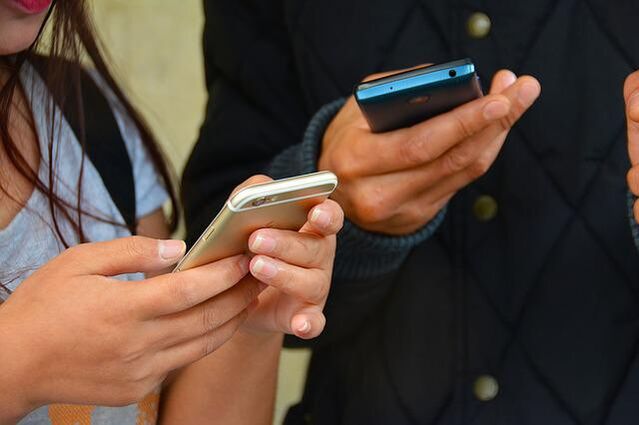Meditation
Are You Too Dependent on Your Phone?
7 tricks to reduce your dependency on your phone.
Posted June 15, 2022 Reviewed by Abigail Fagan
Key points
- Phone dependency can interfere with social and occupational functioning.
- People need to find a healthy balance and learn how to use their devices responsibly.
- Strategies to reduce phone dependence include silencing the phone, getting distance from the phone, and meditating.

“About 6.648 billion people in the world use smartphones; which equals 83.72% of the world’s population,” according to bankmycell.com. Many people use their phones all day and feel as if they are “missing something” if they go out into the world without their device.
Consequences of the over usage of smartphones
Being too dependent on our cell phones can come with consequences, such as impaired relationships with our friends and family—especially if we are focused more on our phone than concentrating on what’s really going on around us.
Additionally, it can be a serious time waster and distract us from doing work. I have heard of people who have neglected their laundry, dishes, and house cleaning because they were spending too much time on their phone.
How do you know that you are too dependent on your phone?
In the OCD/addiction program I run, RIP-R, we have people who enroll in order to overcome all kinds of addictions and compulsive behaviors, including overuse of their phone.
We help people identify if they are using the phone too much. One of the main ways to tell if you are using your phone too much is to notice if your phone usage is interfering with your social and occupational functioning.
7 strategies to break free from phone dependence
Since we are so reliant, as a society, on our phones, here are seven strategies that can hopefully help you.
- Find a hobby that involves using your hands. Some examples are sewing, cooking, karaoke, weight lifting, drawing, and journaling. This can help interrupt phone use, since, your hands are programmed to get onto your phone and swipe.
- Get distance from your phone. Do not be afraid to take a chance, and start going places without your phone. It is going to feel unusual and uncomfortable at first. However, it is the perfect opportunity for you to handle those feelings in a healthy way, rather than hopping on the phone. Identify the way it makes you feel when you are not using your phone; ask yourself, “Hey, what’s going on here?” Where is this discomfort coming from, and what purpose does it serve in my life?
- When at work, try putting your phone on airplane mode and leaving it that way for a certain number of hours. (Unless, of course, you use your phone for work.)
- Support groups are helpful for people who are trying to resist any type of compulsive behavior. People have been using support groups to control compulsive behaviors for decades. Why would we not use them to help with cell phone overuse?
- When you have company over, put your phone to the side, and put it on silent. This is also good if you are on a date.
- Try meditation. Meditation really helps people stay in the moment and become more mindful. Meditation helps people slow down the autonomic nervous system, leaving them calmer and less likely to act compulsively.
- Put your phone in another room when you go to sleep at night. Yes, this means you may have to buy an alarm clock, like the ones we used in the 90s. But you will find it is very helpful especially if you wake up at 2:00 a.m. and the first thing you want to do is get on your phone.
Summary
While cell phones are part of our society, and everybody is using them, it does not change the fact that much like everything else in society, we have to find a healthy balance and learn how to use our devices responsibly. It may be “just a cell phone” but if it gets out of control, it can have serious consequences in your life.
References
https://www.bankmycell.com/blog/how-many-phones-are-in-the-world
Dependent Source: Ketum Subiyanto / Pixabay

